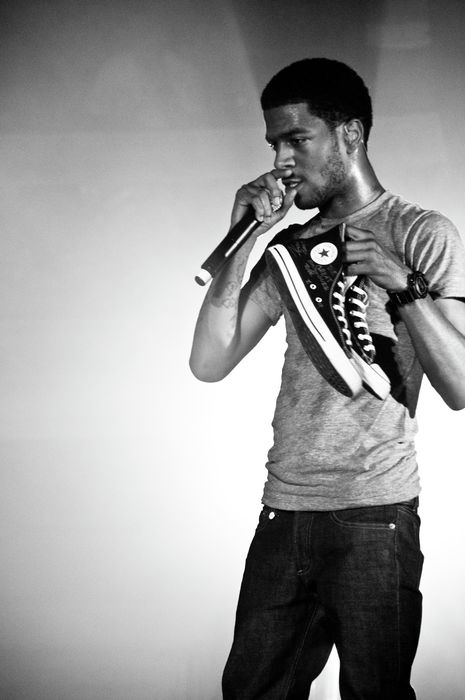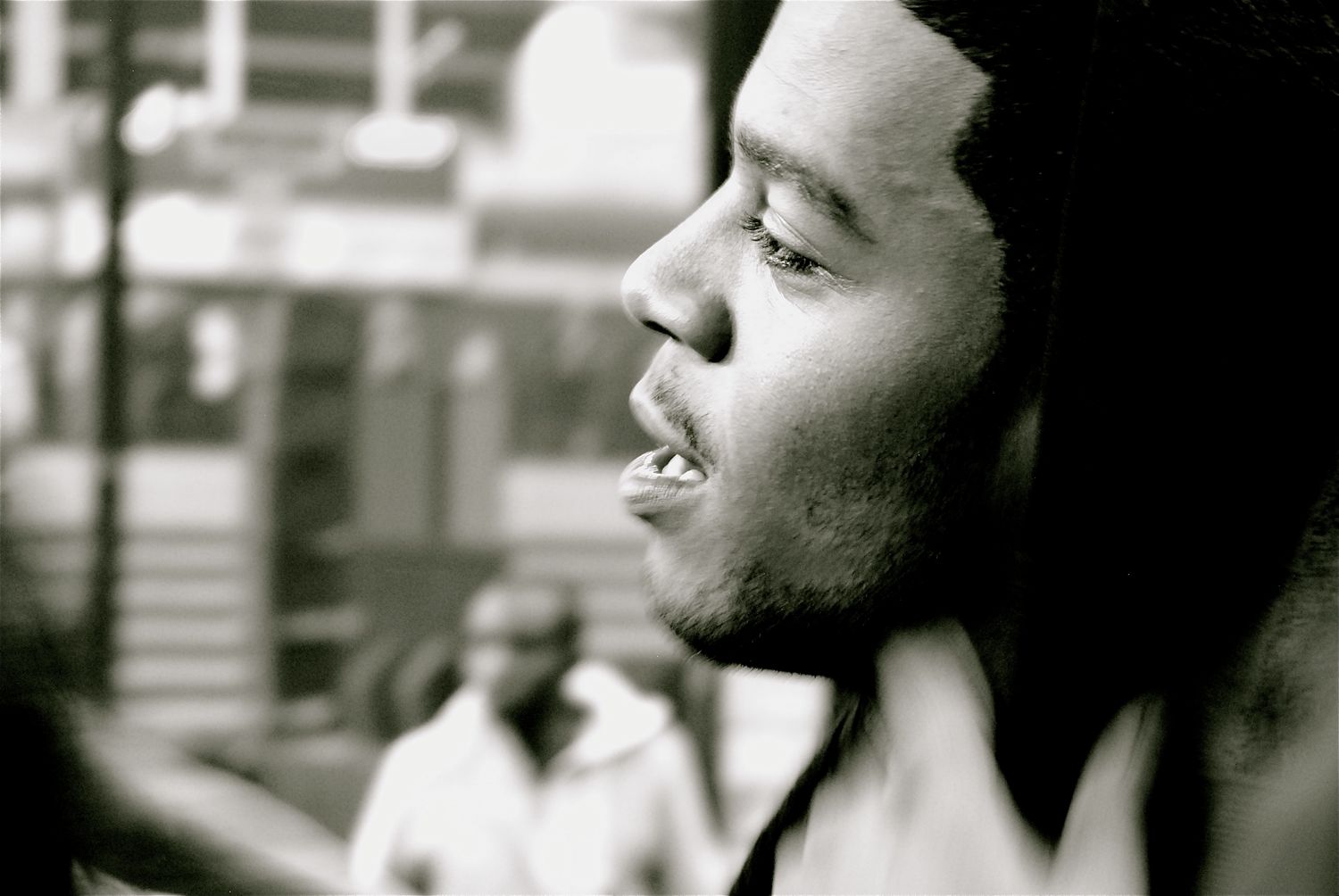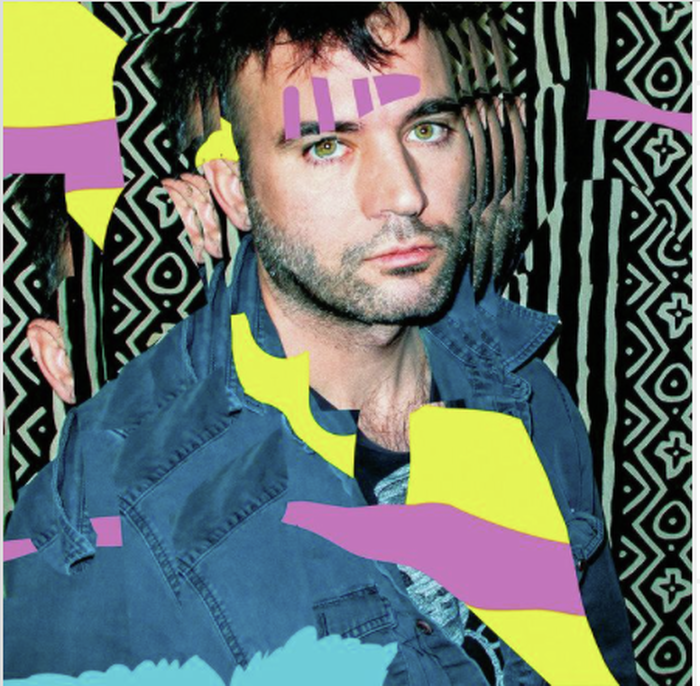Kid Cudi’s Man on the Moon II: The Legend of Mr Rager, released over a decade ago, casts the spotlight on the rapper’s difficult battles with drug addiction, depression, isolation and fame. Classic Cudi tracks, such as ‘GHOST!’ and ‘REVOFEV’, are enduringly infectious, as are his thought-provoking strokes of lyrical genius like ‘I hope they understand that I really understand that they don’t understand’. He and his alter ego, Mr Rager (taken from the eponymous single from the album, in which he presents an alternate version of himself while tripping) explore these heavy themes in a kaleidoscopic vision of neo-psychedelia and alternate hip hop. The album was received with, on the whole, positive reviews, with it even being dubbed an ‘interstellar therapy session’. However, it is in Cudi’s latest release, Man on the Moon III: The Chosen, the third installment of the Man on the Moon concept album franchise, that he wrestles with Mr Rager again, attempting ultimately to win his soul back from the all-encompassing darkness of his personal demons.
“Cudi has offered an alternate mode of self-perception through his highly sensitive lyrical representations of pain”
The subtitle of the album dates back to his 2016 release, Passion, Pain and Demon Slayin’, and the anthemic track ‘Rose Golden’, which details ‘the power I possess / the story of the chosen’. Kid Cudi has always been a vocal proponent of mental health struggles and addiction, which is one of the reasons why he has garnered such a dedicated following, including myself. By utterly reversing the trope of the ‘outsider’ into a path towards artistic greatness and being ‘chosen’ (opening the track with ‘Oh, since I was young, been groovin’ to my own drum / Ain’t that many teachers, show me my potential / Felt like a failure’), Cudi has offered an alternate mode of self-perception through his highly sensitive lyrical representations of pain and self-sabotage.

Split into four acts, this artfully-wrought concept album recounts Cudi’s journey as he relapses in a ‘Return 2 Madness’, unexpectedly battles Mr Rager again and locates power within himself in his ‘Heart of Rose Gold’. Act One chronicles his unexpected retrogression, as in stand-out track ‘Tequila Shots’ he pleads, ‘Nights my mind is speedin’ by, I’m holdin’ on / Askin’ God to help ‘em, are you hearin’ me?’. Cudi pays homage to old and new producers alike, mentioning longtime partner Dot Da Genius as well as new duo Take a Daytrip, which preserves the fresh feel of the opening tracks as well as the stereotypical Cudi sounds that close the album: ‘As he falls back deeper, into a state / The return (Dot Da Genius, baby) / (Daytrip took it to ten, hey)’. ‘Another Day’ and ‘She Knows This’ both feature a thundering bass that gives the tracks a dark, cinematic quality, and places a great deal of emphasis on the tenebrosity of his mind. The distorted autotune – perhaps courtesy of Kanye West’s recent releases and their influence on Cudi as an artist – works to preserve a psychedelic element to the tracks, providing a technical twist to the Man on the Moon trilogy. It’s a successful opening, but undeniably, these tracks are overshadowed by the subsequent acts.
“Cudi goes so far as to cry for help periodically between verses”
Act Two features one of the more popular tracks, ‘Show Out’, featuring Skepta and Pop Smoke, although I feel it’s at odds with the rest of the album, and resonates far more with a UK-based vision of rap. Cudi displays a powerful vocal range in this song, managing to manipulate his voice and tone brilliantly, yet his pertinent bars on mental health – ‘All of this evil that’s in my way, I pray to God with open arms / No, can’t trip, get grip’ – are at a disjunct with the contributions of Pop Smoke and Skepta. A true highlight of this Act, however, and the entire album, is ‘Solo Dolo, Pt.III’, which commences in the same eerie instrumental manner as ‘Solo Dolo (Nightmare)’ from the first Man on the Moon, and ‘Solo Dolo Part II’ on 2013 release Indicud, featuring rap legend Kendrick Lamar (Lamar’s complex verse on the track is phenomenal, with its classic, fast-paced rhythm). This track lies at the heart of the album, where Cudi is at his most musically vulnerable, rapping ‘Say, “I’m waitin’ to die,” I cry / Many nights I spent gettin’ fucked up, livin’ a lie / Prayin’, I’m just fed up’. The beat is melancholy, the pace is pared-back, and Cudi goes so far as to cry for help periodically between verses.
Echoes of 2015’s rock-infused Speedin’ Bullet 2 Heaven surface in Act Three, in particular on ‘Elsie’s Baby Boy (flashback)’. Cudi opens the track with an excerpt of a scene from the 1986 coming of age movie Stand By Me. River Phoenix and Will Wheaton famously bid goodbye before leaving Castle Rock, and the emotive quality of the scene has been known to bring Cudi to tears, hence its inclusion on a track about his childhood and family. Cudi’s previous experimentation with rock and alternative influences (particularly Nirvana) has been critically slammed, but this track shows the maturity and development of this sound. It feeds beautifully into the outstanding ballad ‘Sept. 16’, named after the date of Cudi’s girlfriend’s birthday. It’s produced alongside Finneas, which perhaps accounts for the dark, electropop twist to this extraordinary love song, à la Billie Eilish.
“It seems as though both the album and Cudi have reached a point of resolution”

The final two songs of Act Four, and the album at large, are my personal highlights of the project, and feel at one with Cudi’s entire catalogue. ‘4 Da Kidz’ features a parallel message to ‘Rose Golden’ – fitting for an act named ‘Heart of Rose Gold’ – and by extension Cudi’s musical mission. He stands in solidarity with his young fans who have experienced mental health issues – ‘For every lil’ homie that’s lonely / This is all for you’ – and promises that no one is isolated – ‘Feelin’ alone, just know you are not / We won’t leave you alone, oh-oh / This is just the right vibe’. This intergalactic ode to the ‘chosen’ ones rings true with all that Cudi stands for, and finds its perfect placement on the album’s closing. The crux of the album is, for me, ‘Lord I Know’, as the presence of both ‘Pursuit of Happiness (Nightmare)’ and ‘Reborn’ can be felt in the final song’s promotion of perseverance despite mental health challenges. It seems as though both the album and Cudi have reached a point of resolution, as he says ‘The world is steady spinnin’ and I’m in it full speed now / Couldn’t miss the perfect moment, been livin’ wild / Every day’s a blessing, get the message, God, hear me out’. Cudi himself calls the song a ‘Cudi classic spiritual hymn’, and that it most certainly is.
While it must be said that the album gets off to a slow start, the backend of Man on the Moon III: The Chosen is a definitive Cudi masterpiece. Cudi explains that “one of the messages I want people to pick up on the album is [...] that there is someone looking out for you on this journey, [even if] it might seem like you’re out there on your own”, and this sentiment resounds throughout the latest installment of this trilogy. Cudi, once again, reinstates his ‘big brother’ persona, and crafts a safe (and slightly psychedelic) space for his musical audience through this serpentine album.


